10 hotel amenities growing in popularity
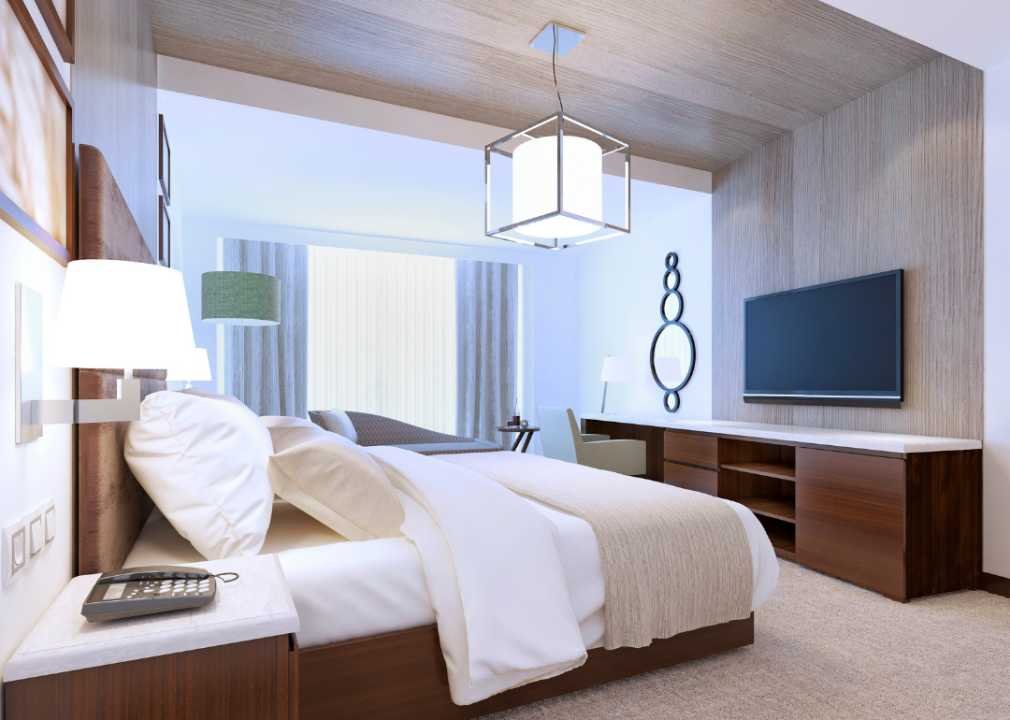
Canva
10 hotel amenities growing in popularity
Once upon a time, going on vacation almost always meant a hotel stay. Platforms like Airbnb, VRBO, and HometoGo didn’t exist, and all-inclusive resorts weren’t as abundant and affordable as they are now.
With the rise of alternative stay options, many hotels have found they need to increase the number of amenities they offer to stay competitive. When social media came along, travelers began posting their real-time experiences online, putting even more pressure on hotels to stand out. Social media gave birth to influencers, who could give other travelers an intimate look inside hotels they haven’t yet stayed in, allowing them to more easily compare options.
One of the best ways for hotels to set themselves apart these days is by reevaluating their amenities. Gone are the days when a mint on the pillow and a complimentary hand lotion are enough. Today’s travelers want more—expansive room service options, top-of-the-line gym equipment, and in-room beauty services, among other things. Hotel Engine looked at the latest news from travel publications and industry organizations to compile a list of 10 hotel amenities growing in popularity.
![]()
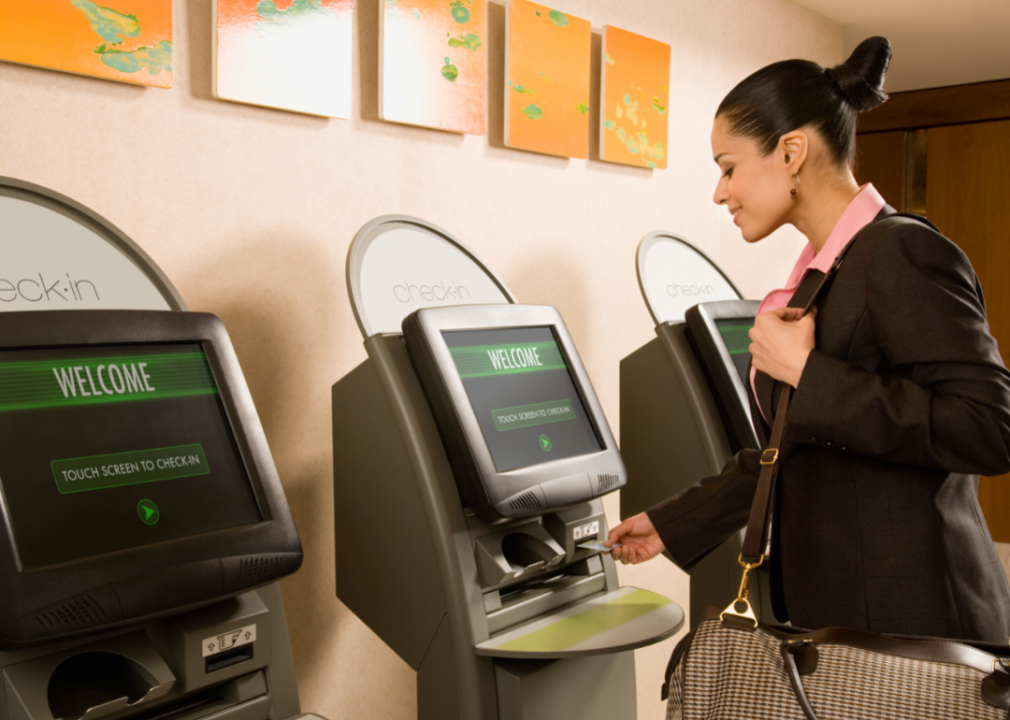
Canva
Self check-in
Fifty years ago, the height of luxury in the hotel industry was personal service. Today, guests are increasingly demanding self-service options instead, such as self-check-in through kiosks, apps, and other mobile devices. Close to 90% of people would choose a hotel with contactless mobile check-in and other services instead of a hotel without this option, according to a 2020 survey conducted by consulting company Metova. Face-to-face interactions are increasingly seen as unnecessary and, following the COVID-19 pandemic, a potential health risk compared to self-service options which can be more convenient and frictionless.
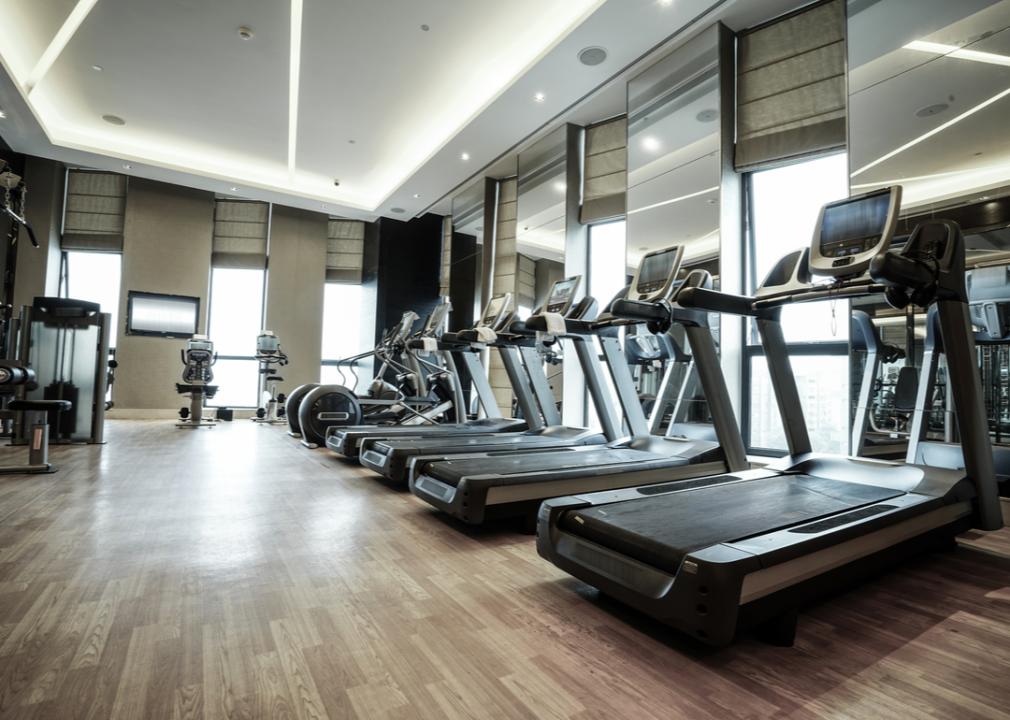
August_0802 // Shutterstock
Gym equipment with live classes
With the rise of virtual workout classes, which boomed during the first year of the COVID-19 pandemic, breaking a sweat has become more accessible and convenient, and fewer people are willing to forgo the rush of endorphins it provides when they’re out of town.
Travelers are increasingly looking for hotels with full gyms and specialty equipment (like Peleton bikes and the Mirror) so they can carry on with fitness routines while they’re away from home. Fitness magazine Shape even compiles a list of hotels with specific gym equipment for their readers. Bare-minimum gyms may no longer cut it for hotels looking to attract more guests.

Canva
Eco-friendly toiletries
Conversations about climate change and the impact of human consumption have gotten louder over the last several years. According to the Pew Research Center, 64% of Americans now say that protecting the environment should be a top priority for our government—and governments across the U.S. are taking note.
Hawaii lawmakers are considering a bill that would ban single-use plastic in hotels (including toiletries) in an effort to keep more out of landfills. Bills like this, and society’s general inclination to want to do their part no matter how small, have more hotels than ever before switching to green, refillable, and eco-friendly toiletry options in their hotels.

Canva
Coworking spaces
Among the many things to come out of the pandemic is a realization that work doesn’t always need to be done in office buildings and cubicles. Remote work, a necessary measure during the height of the virus’ spread, is likely here to stay. As a growing number of companies offer work-from-wherever perks, employees are taking advantage of them, choosing to take working vacations or work out of their local hotels and coffee shops or restaurants for a change of scenery.
Hotels are perfectly poised to grab a slice of that coworking pie with plenty of shared spaces (like lobbies, conference rooms, and restaurants/bars) that they can charge fees for, a la WeWork. Alternatively, hotels can attract digital nomads by including coworking spaces as a perk with reservations.

Anel Alijagic // Shutterstock
Room service from local restaurants
Traditionally, room service is one of the most expensive amenities hotels offer, both for the guest and for the company. For hotels, providing room service means a bevy of extra permits, staff, and space. To compensate for this, guests often pay high prices for relatively basic meals. Still, you can’t beat the convenience of having breakfast or dinner delivered straight to your door.
One way many hotels are getting around the price predicament is by utilizing third-party kitchens, partnering with local restaurants or apps to have hot meals delivered to guests at a much more affordable price. It’s a win-win for both parties: Hotels can continue to offer the popular perk and customers can save money while enjoying fabulous meals.
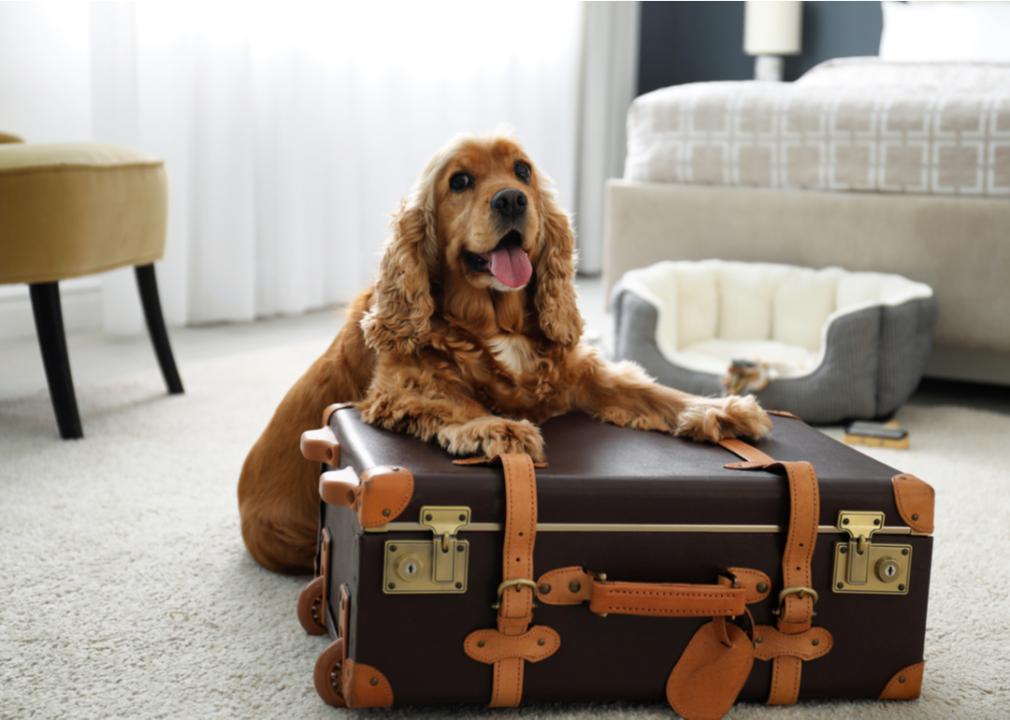
New Africa // Shutterstock
Pet-friendly accommodations
By 2016, 75% of hotels allowed pets in their rooms, according to the American Hotel & Lodging Association. Younger generations see their dogs and cats as members of the family, and leaving them at home (and consequently worrying about their happiness and well-being) is practically unconscionable. ASPCA reports 23 million households acquired a new pet during the first year of the pandemic. This increase in pet ownership, along with the fact that many folks would prefer to travel with their furry friends, means pet-friendly hotels are even more attractive to guests.
To help pet owners figure out where all members of the family can stay—whether two- or four-legged, many outlets like the American Kennel Club regularly compile lists of hotels that welcome pets.
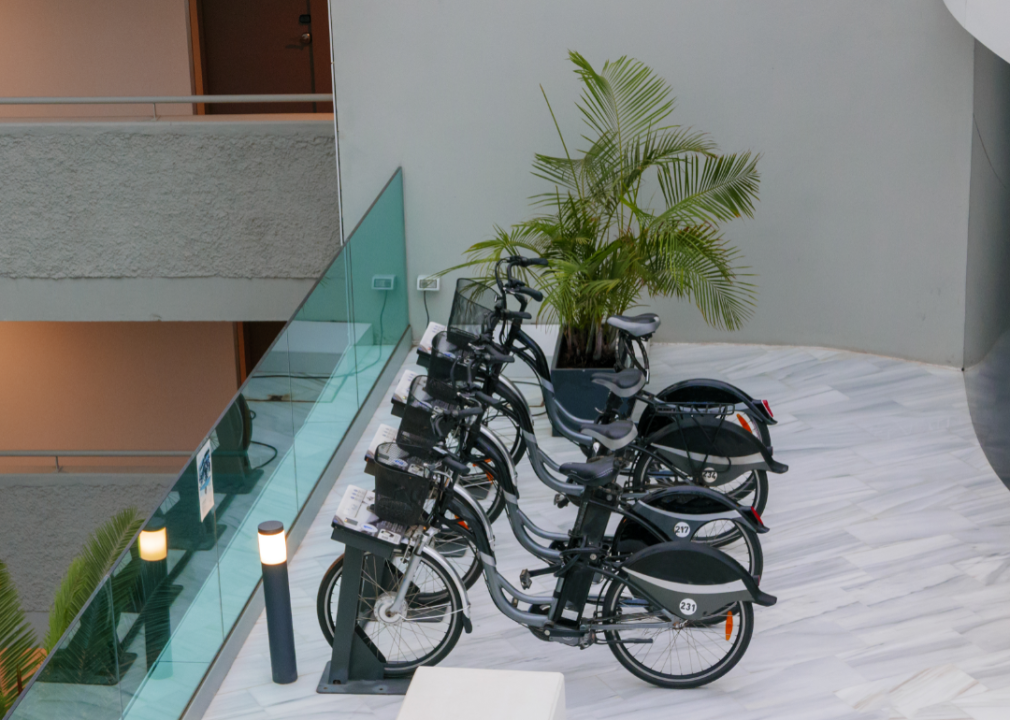
Steven Frame // Shutterstock
Onsite bike rentals
According to one study, conducted by Hexa Research, the global bike rental market is expected to reach $4 billion by 2025. Now, more than ever before, people are interested in eco-friendly methods of travel. But when visiting a new city, enrolling in a local bike-share program, like CitiBike or Spinlister, can be a hassle.
Hotels can meet this need by offering onsite bike rentals, saving guests the headache of figuring out a new program. This also allows travelers to experience their vacation spots in an environmentally friendly way. Some hotels take the bike rental program a step further, sending guests off with packed picnic baskets and hand-drawn maps highlighting the city’s landmarks, turning the bikes into a full-day adventure. Outlets like Conde Nast Traveler frequently highlight hotels that offer this amenity.
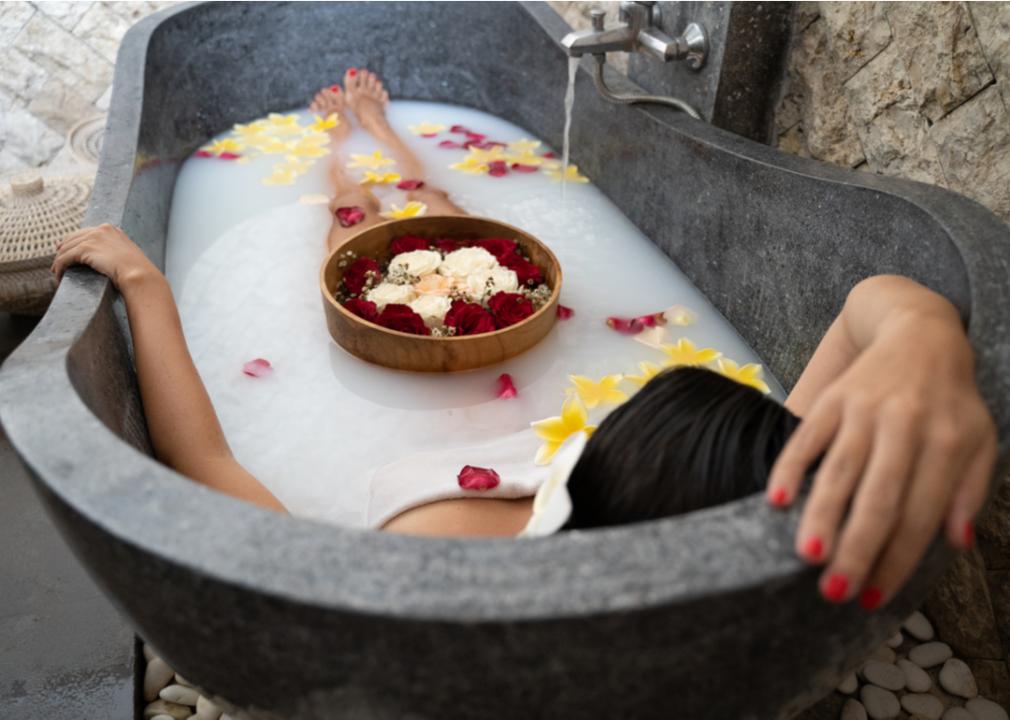
KrakenPlaces // Shutterstock
In-room beauty and wellness services
Many hotels offer beauty or wellness services in their onsite spas, but far fewer bring the treatments to their guests’ rooms. Just like with self-service check-in, in-room treatments are more convenient and frictionless for guests. Plus, offering wellness-related services can help counter the inherent stress of travel.
Incorporating this concept can help hotels tap into the wellness travel trend, which has experienced a massive boom in recent years. The global wellness tourism industry is worth $436 billion, according to 2020 data from the Global Wellness Institute.

Proxima Studio // Shutterstock
In-room espresso machines
The National Coffee Association reported in 2021 that 60% of Americans consumed coffee within the day leading up to its survey. Enhancing in-room coffee options, then, can likely improve the overall stay. An in-room espresso machine allows hotel guests to wake up to high-quality coffee drinks, which is particularly attractive to coffee snobs—and those who don’t want to get dressed before they get their morning dose of caffeine.

GUNDAM_Ai // Shutterstock
Digital concierge
Hotels have long been known for having dedicated individuals who handle everything from recommending restaurants, arranging guests’ evening plans, and dealing with their luggage. Convenience is the name of the game for the modern-day traveler, and this includes having someone ready at the push of a button—no waiting in a queue required. Digital concierges, which come in the form of an app, website, or hotel software solution, do just that.
While some hotels may be concerned about the lack of a personal touch, it’s important to remember that a growing number of travelers are of the younger generations who have never lived a day without the internet. While that personal, human touch is important to them, it’s not as essential as fast, easy-to-access amenities.
This story originally appeared on Hotel Engine
and was produced and distributed in partnership with Stacker Studio.






